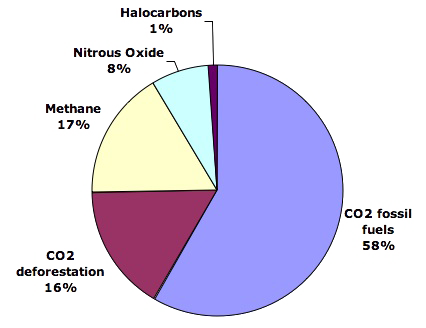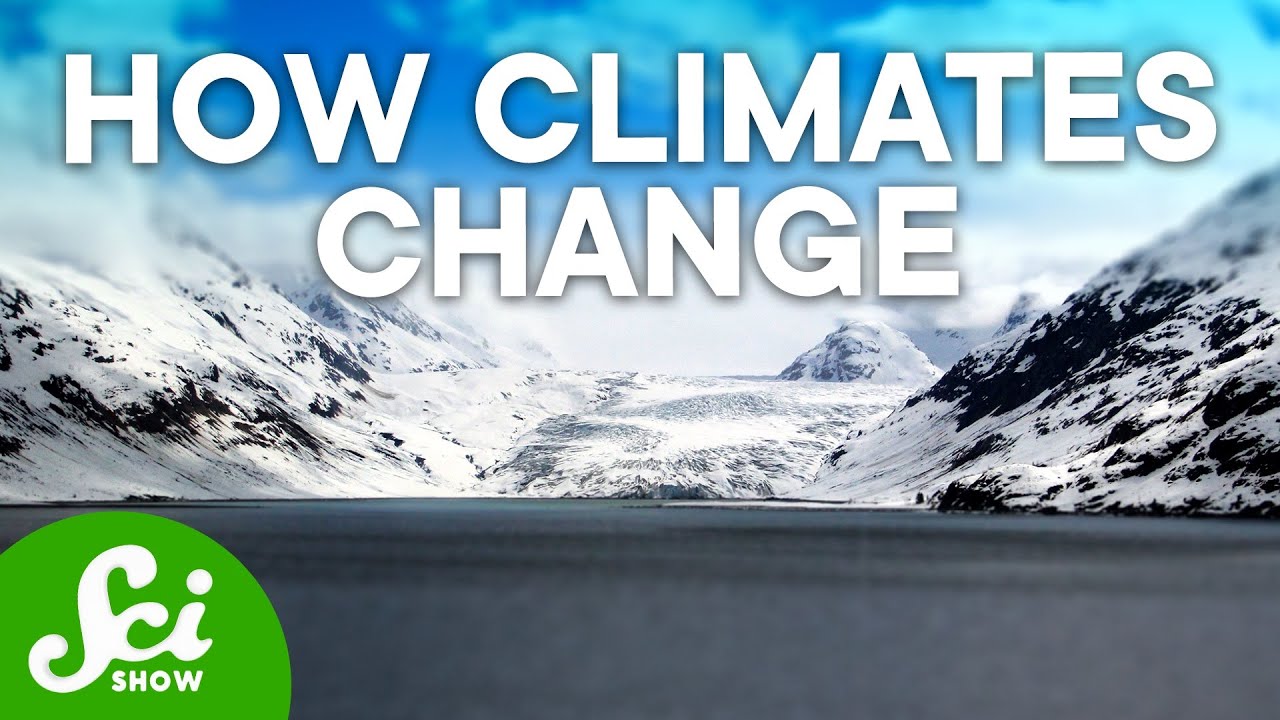
Although the relationship between climate and national security has been around for a while, it is becoming more prominent in recent years. The human effects of climate change can make existing threats worse, increase instability and create the possibility of violent conflicts. These threats can impact everything from economic stability and the health of nations.
The effects of climate changes are not only a threat to national security; however, they have been an ongoing topic of discussion in national policy guidance since 1991. These issues include increased heat waves, drought, flooding, and sea level rise. Air Force chief of staff, for instance, has highlighted the impact of climate changing in Syria's conflict.

The loss of agricultural production is one of the major consequences of climate change. The extreme heat and dry conditions in tropical regions can make it difficult for crops to thrive. Crop yields could drop by 20-50% in the next few decades. This will put a strain on food supplies and cause hunger. Additionally, more frequent and severe weather events can result in business interruptions or property damage. This also increases the need to provide humanitarian aid.
Climate change is a threat that must be addressed. Adaptation strategies are crucial. However, the United States has not been able to convince other nations that they need to address climate change. Wealthy nations will have to step up and cut emissions in ways that go beyond the current promises. Developing nations will suffer the most.
A new report by the Center for a New American Security Military Advisory Board has highlighted the impacts of climate change on national safety and security. The report states that a changing climate will lead to increased likelihood of civil wars and armed conflict in volatile parts of the world. These include areas where climate change will cause disruptions to social order, lower access for basic necessities, and weaken fragile governments.
This report points out the case of Africa, where there could be a reduction on access to water, food, and that could lead to more severe, costly and frequent disasters. The risk of spreading infectious diseases will rise if the heat wave is more intense and frequent. Climate change will also have a negative impact on the Arctic Ocean and increase competition for resources. In the end, climate change will lead to tens and millions of people being relocated by 2050.

These future threats can be addressed by the military. This context highlights the danger of over-emphasizing climate change as an imminent national security threat. It also risks undervaluing the multidisciplinary nature of adaptation solutions. It might be better to put emphasis on international assistance and not military solutions.
Nearly 60 percent of Americans see climate change as a major threat to their country, according to the Center for Disease Control. Although Republicans tend to believe that human activity is the main cause of climate change, Democrats are more likely to point to local impacts.
FAQ
How does climate politics affect global efforts for its resolution?
Climate change is a hotly debated issue, which has led to a lot division among countries, governments, as well as individuals. Politicians of many actors influence the implementation of actions to address climate change. It is becoming difficult to reach consensus on global efforts for addressing this urgent environmental crisis.
Scientific consensus is unanimous that human-caused climate change is real and needs to be addressed. These issues are often dominated by politics, which can hinder global cooperation that is necessary to implement sustainable energy practices, protect natural habitats, research viable technological solutions, as well as other climate change interventions.
Many governments across the globe are determined to protect their own economic interests and enforce regulations that restrict business activities. This frequently clashes with the regulations that experts recommend in order to tackle climate change effectively. It is very difficult for any one state or group of countries to effectively address climate change without strong commitments from all participants and broad-scale international action.
Differences in power dynamics among countries further complicate gaining full consensus on how best to tackle climate change. Countries with more economic power may appoint themselves to be represented on international bodies for negotiations about the environment. This can lead the to divisive discussions between the countries' interests and the collective interest. The potential side effects of radical change like geoengineering, have been extensively discussed at both the national level and internationally.
In the same way, grassroots movements are fighting powerful opponents at the grassroots level. These include corporate ownerships and well-funded lobbyists looking to retain politically favorable positions.
Properly distributing resources allocated towards any intervention program while being mindful of political divisions between nations will be critical if any coordinated effort aimed at mitigating our current environmental crisis is going successfully to come to fruition.
What are the impact of deforestation and land use change on climate change?
Deforestation and land use change have a direct and immediate impact on the climate. Trees that are cut down or burnt can no longer absorb carbon dioxide. This is one of the most important greenhouse gasses on Earth. The atmosphere is less carbon dioxide if trees are removed by deforestation, or burned for agriculture purposes.
Changes in land use can release more greenhouse gases into our atmosphere. To illustrate, if forests are replaced with agricultural lands to support livestock production, fertilizer and pesticide use could increase methane emissions. Also, clearing can increase soils containing large amounts of carbon; these soils may be exposed to farming activities that turn them over or disturb them, which will release more carbon dioxide in the atmosphere.
The impacts of deforestation and land-use change extend beyond just increased greenhouse gas emissions; it can also have an impact on regional air quality. The smoke from deforestation's burning events has been linked to poor visibility and other health concerns, such as asthma or other respiratory diseases. These changes in air quality can have a cumulative affect on global climate change. The increase in temperatures is due to more sun hitting the Earth's surfaces.
The deforestation of land and the resulting changes in land-use have made a significant contribution towards increasing global greenhouse gas emission levels. These impacts have also had a negative impact on local air quality which has further contributed to climate change. If serious efforts to combat climate change are to occur, it should be a top priority to reduce these practices.
What is the effect of climate change upon biodiversity and ecosystems?
Climate change can have many impacts on biodiversity and ecosystems. Climate change is affecting ecosystems and wildlife today.
These changes can result in shifts of habitat areas, disrupting food chains or affecting population numbers or distributions. With potentially devastating consequences for biodiversity, ecosystems and their functioning, these shifts in climate conditions could cause significant impacts. Hydrological changes can also impact water availability for aquatic species.
Moreover, changes to climate result in rising temperatures and more frequent extremes such as droughts and floods which puts more stress on already fragile systems such as coral reefs or tropical rainforests. The climate change will lead to the extermination or decline of as many as 30% of animal species in 2050. This could cause further destruction of ecological communities.
Climate change is a serious threat to biodiversity as well as human societies that rely on functioning ecosystems for food and fresh water. The best way to minimize its impact is to work at every level to reduce global warming trends. Future damages can be avoided with prudent management practices.
What is the role of the energy sector in climate change and how can it be addressed?
The energy sector is a major contributor to climate change. The burning of fossil fuels is a primary source of global warming, caused by releasing carbon dioxide into the atmosphere, trapping heat, and leading to an increase in average temperatures on Earth.
To address this issue, energy sources must transition away from carbon-emitting fuels like coal and natural gaz and instead turn to renewable energy sources like solar, geothermal, wind, and other renewable sources. This shift can be implemented not only through government policy and incentives but also through investments in innovative technology such as hydrogen fuel cells. Businesses and households will be able to reduce their carbon emissions and lower their electricity bills if they invest in infrastructure that supports renewable sources.
Alternatives include moving away from polluting vehicles like petrol-powered cars and moving to electric vehicles or public transportation. Governments can help lead society's transition from oil-based infrastructures to cleaner alternatives by funding research into battery technologies and encouraging consumers to make investments in cleaner modes.
Companies must also adopt green business practices to reduce their carbon footprint. This includes installing better insulation in offices and implementing energy efficiency plans at production plants. This will help reduce operational costs and improve environmental performance.
These initiatives must be championed not just at the company level but also at the government level for them to be truly effective; increasing taxes on pollution products encourages individuals to switch away from harmful practices without forcing them financially outcompeting polluters by providing vouchers or subsidies for low-carbon products will create an ongoing market to support sustainability efforts moving forward. In conclusion, tackling climate change requires a massive effort from both private industry and private citizens alike; switching to clean energy sources and adopting green practices are key aspects of fighting global warming which will positively affect generations now and are yet to come.
Statistics
- This source accounts for about 10% of all the water that enters this highly productive farmland, including rivers and rain. (climate.nasa.gov)
- According to the 2014 report on Climate Change Impacts, Adaptation, and Vulnerability (page 8) from the United Nations Intergovernmental Panel on Climate Change, governments at various levels are also getting better at adaptation. (climate.nasa.gov)
- Indigenous peoples and local communities receive less than 1% of all climate funding despite scoring wins for people and nature Africa's broken food markets must be fixed to tackle hunger (climatechangenews.com)
- features Earth's average surface temperature in 2022 tied with 2015 as the fifth warmest on record, according to an analysis by NASA. (climate.nasa.gov)
- According to the 2014 report on Climate Change Impacts, Adaptation, and Vulnerability (page 8) from the United Nations Intergovernmental Panel on Climate Change, governments at various levels are also getting better at adaptation. (climate.nasa.gov)
External Links
How To
How to Reduce Carbon Footprint, Fight Climate Change
There are many actions you can take in order to reduce your carbon emissions and fight climate change. First, reduce any energy you consume in your home by investing in energy-efficient appliances, lighting, and insulation. You can also save energy by unplugging electronics when not in use, using public transit, walking rather than driving, and turning down the temperature on your thermostat in the winter and summer months.
Second, make sure to recycle materials whenever possible and compost food scraps instead of throwing them away so they don't end up in landfills where they release methane gas into the atmosphere. Third, consider planting trees near your home to shade the sun and provide natural cooling. Additionally, look into purchasing products with minimal packaging.
Other than reducing your personal emissions, you may also be able to support organizations that work towards lowering global emissions. Organizations such as Emissions Reduction Alberta or Climate Change Solutions; The Pembina Institute; The Nature Conservancy Canada and The Nature Conservancy Canada are all working towards reducing emissions via clean energy investments. International initiatives such ICLEI (Local Governments for Sustainability)'s urban sustainability strategies program can also be supported.
All of us can make small changes to our daily lives and help combat climate change.